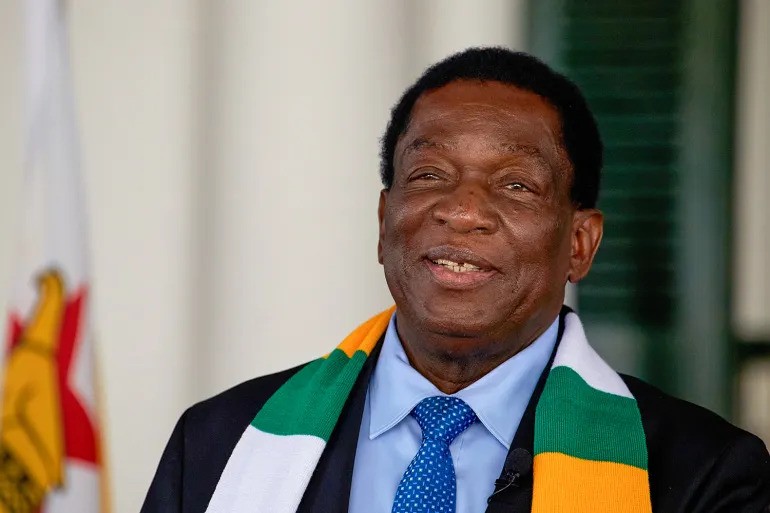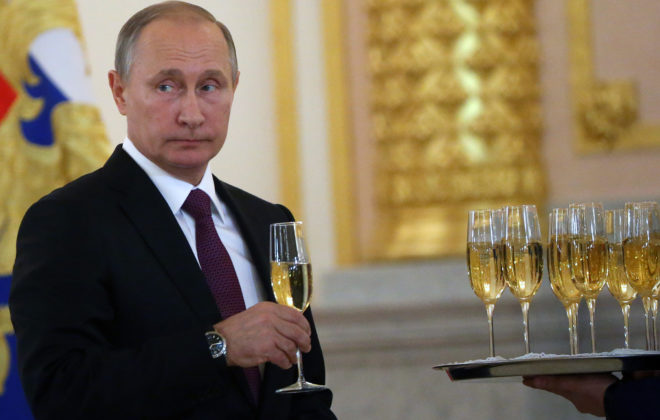HARARE – Zimbabwe’s presidential spokesperson George Charamba has endorsed Tsvangirai’s much maligned hasty appointments of Nelson Chamisa and Elias Mudzuri as Vice President party deputy Presidents.
The mysterious appointments have since been challenged in the courts by party members whose grievance is that Tsvangirai breached the party constitution.

In his famous Saturday weekly column Mr Charamba who is believed to be loyal to the Zanu PF faction of Vice President Emmerson Mnangagwa Saturday warmed up to the appointments and praised both appointees.
Tsvangirai cancer illness was first revealed on the social media by senior Herald reporters who also said he had only two years left to live.
In glowing tone Mugabe’s spokesman said: “I don’t know what went behind the MDC-T scenes, leading to the appointment of two other vice presidents, over and above *Thokozani Khupe, the pots and pans vice president*. I am not curious to know, for that concerns their party and their members.”
“Come to think of it, the two *new appointees are likeable characters, educated ones too*, who have acquired quite some profile in national politics”, Charamba said.
Read Also:
- Breaking News: Tsvangirai names Chamisa, Mudzuri MDC-T vice presidents
- Chamisa on the run after clamping a man’s testicles with a pair of pliers
- Chamisa nearly beaten up in parly scuffle
- Does the UK favour Mnangagwa over Mugabe and Chamisa over Tsvangirai?
- Chamisa shames truant Jonathan Moyo in Parliament
- Chinotimba disowns Nephew Chamisa in Parliament
- Sick Tsvangirai hauled before court over VP appointments
- #Thisflag Pastor Evan Mawarire court hearing in pictures
Charamba has got himself entangled in the ZANU-PF factional wars in which he has taken sides with a faction aligned to Vice President Emmerson Mnangagwa.
The Mnangagwa faction is battling against another called Generation 40 (G40), believed to be determined to thwart the Vice President’s presidential ambitions.
Charamba has featured in State radio interviews attacking Zanu PF anti-Mnangagwa faction, insisting he speaks for the President and not himself.
“True, one may be young, too young perhaps, but in terms of party politics, he seems the proverbial chick that will grow into a sprite cock. Mudzuri on the other hand kept his cool amidst repeated adversities, all of them wrought by a *hostile leadership*.”
“Frankly, I have a very dim view of Thokozani Khupe. She has not been able to be the glue to hold together Bulawayo, only small Bulawayo. How is she expected to be the glue that kneads a whole party? And when Tsvangirai was away on sick leave, her rolling addresses were a little lower than pedestrian, thick dour unable to rouse even the most excitable. You cannot present her as a national figure, let alone pit her against Robert Mugabe, the Zanu-PF 2018 presidential candidate,” Charamba said.
Writing for the African Arguments, Zimbabwean Oxford University lecturer Blessing-Miles Tendi argues that the United Kingdom’s interest in Zimbabwe’s succession politics goes beyond ZANU-PF and the presidency, and he says it also involves the opposition as well.
Mr Tendi says; Since his 2013 election defeat, Tsvangirai has viewed Nelson Chamisa, the MDC-T’s former National Organising Secretary, as a threat to his continued hold on party power.
“And not only does Chamisa enjoy a close but unclear relationship with Mnangagwa − an association that is much debated in elite circles and one Tsvangirai is said to be ill at ease about − but it is also alleged the UK now favours Chamisa as MDC-T leader over Tsvangirai.”
This prompted Tsvangirai to tell journalists that: “I was with one of the ambassadors [in Harare] who was talking about [Vice-President Emmerson] Mnangagwa being a pragmatist”.
In his column says; “Good management of party politics includes guarding against public flare-ups such as we have seen in MDC-T.Good management of party politics means keeping conflicts under control, subterranean. For it is in the nature of political fallouts to be nasty, very nasty, feeling a whole wash-line with between-sheets dirt. This is what is happening now in MDC-T, and the party’s opponents are busy studying the fault lines for strategic decisions.
Clearly Khupe is unhappy, very unhappy to have colleagues in the second echelon of leadership.”
Charamba goes on to say; “Khupe would rather she was alone, becoming a presumptive successor to Tsvangirai thereby. Too daft to see, that unhappiness suggests she looks forward to Tsvangirai’s demise, feeling the new appointments amount to snatching a succulent piece of meat from her salivating mouth. She is now receding into tribal and gender arguments, further alienating an already fractured Bulawayo and national vote. Already fractured by her and her divisive leadership qualities.”
“Obert Gutu is unhappy, very unhappy given that Chamisa, his bete noire, has ran past him by administrative fiat, emerging as his boss. The rivalry between the two Masvingo home boys is legendary, with Chamisa joining the law school to prove that what Gutu and Mwonzora can do, he can do better. For the two had ganged up, inviting a brutal comeuppance on Chamisa in the last congress,” Charamba said,
He goes on to say; “Like a good politician, Chamisa did not go or tumble down; he descended to grassroots levels where the people are, leaving his two lawyer-opponents flying high, higher, airy but rootless. As I write, he has a stranglehold on the MDC-T youth wing, and enjoys good chemistry with the general membership, he and Mudzuri.”
“By contrast, Gutu and Mwonzora are patrician politicians, only needed after activist police arrests, or when a monological expletive against Mugabe has to be summoned, composed and bleated. They lack grounding on terra firma, the way Chamisa and Mudzuri do.”

“Both Mwonzora and Gutu are unhappy, and have been bad-mouthing Tsvangirai through deep media throats. And given their unimaginative communication skills, you can trace their footprints. That is the trouble with people with a limited vocabulary.
“The legal challenge against the appointments purportedly done by “ordinary members of the party” amount to too obvious and open a trick to fool anyone. The two have sponsored it. But it also invites the courts into what is supposed to be in-house party matters. Hardly a clever way of solving problems, or building public confidence in readiness for 2018.”
Born 28 February 1978, Chamisa is an MP for Kuwadzana, Harare. His charismatic speeches and eloquence seen him rise to become the Secretary for Information and Publicity for the Movement for Democratic Change (MDC), and he is a former national youth chairperson for that party. He served as a cabinet minister from February 2009 to July 2013, until the end of the Government of national Unity.
He lost the position of party Secretary General in 2014 congress to Douglas Mwonzora. He is also known for his underground power scheming projects were he is nicknamed as Nero and Cobra for those activities.
He holds a bachelor’s degree in Political science and Public administration and LLB(Honours) from the university of Zimbabwe. He is a qualified lawyer and works for Harare top law firm Atherstone and Cook as from November 2014, the same firm that won the case for Zuva Petroleum, a judgement that ushered the 17 July 2015, arbitrary dismissal of workers.
Miles Tendi has argued that the fact that the UK’s apparent partiality towards Mnangagwa has become known well before Mugabe leaves office also reflects the diplomatic mission’s lack of discretion − especially with Mugabe having said he intends to run for re-election in 2018 − and could have an impact on those very succession dynamics.
His argument says; “Mugabe could interpret the UK’s preference for Mnangagwa as his arch-enemy choosing his successor. Indeed, one of the allegations Mugabe used to justify his purge of former Vice-President Joice Mujuru in 2014 was that she is a moderate reformer who had proven acceptable to America. The UK’s bias for Mnangagwa may prove a kiss of death for this long-time presidential aspirant too.”-Thezimbabwemail







1 Comment